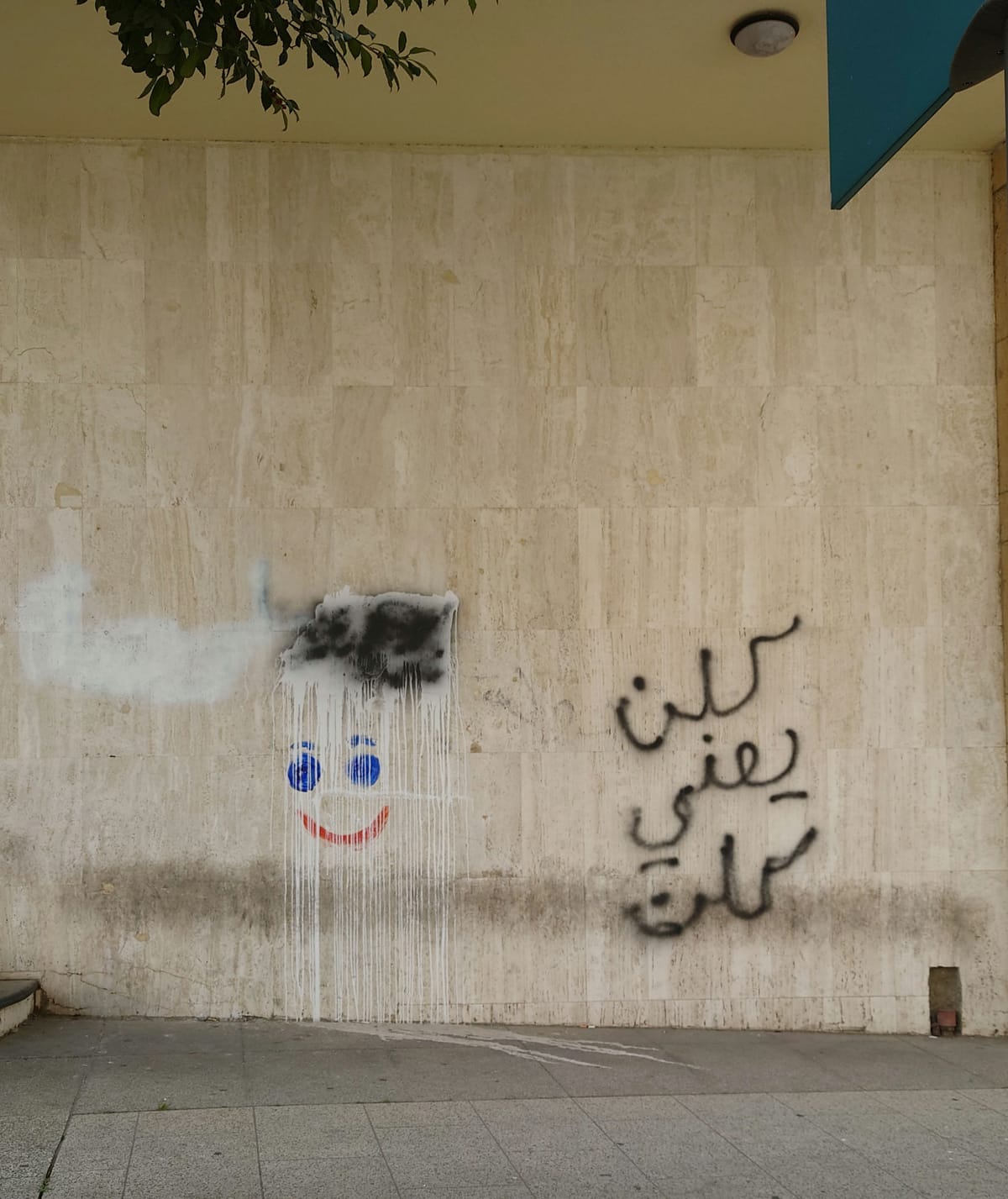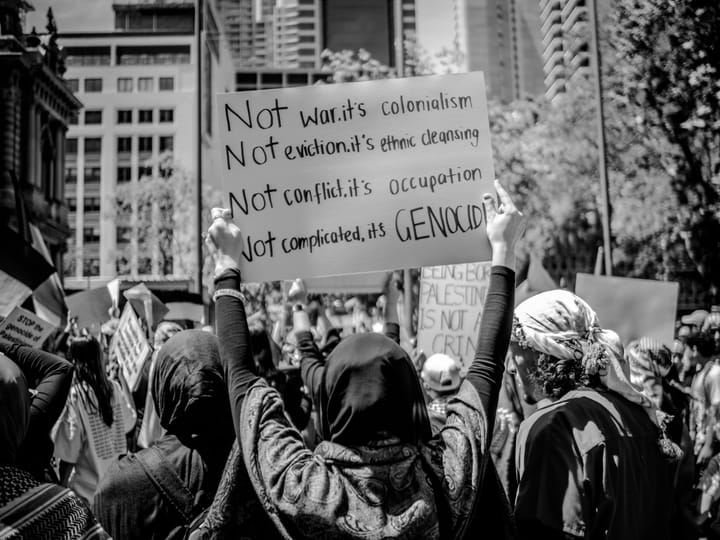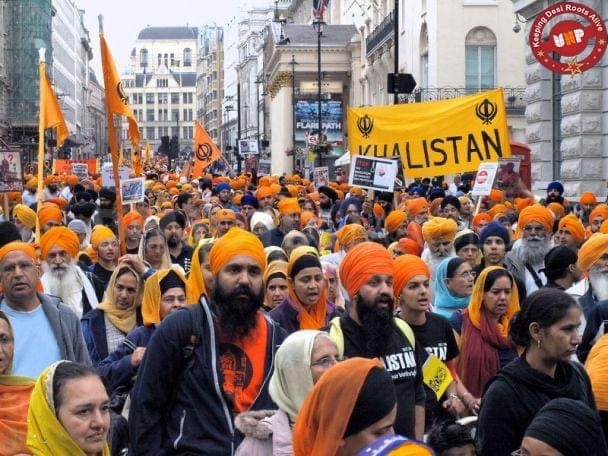How Hyperinflation is Exposing Lebanon’s Fragility
Since 2019, the small eastern Mediterranean country of Lebanon has been embroiled in a major economic meltdown. For a country seemingly in perpetual crisis, this seems to be just another chapter in its long history of age-old rivalries and foreign interference.

Since 2019, the small eastern Mediterranean country of Lebanon has been embroiled in a major economic crisis. Annual inflation hit a record-breaking 239% in 2022 as the Lebanese lira plunged against the US dollar, dissolving the values of life savings and increasingly pushing working-class Lebanese into poverty. As of December 2023, the government’s fixed rate means 1 USD is officially worth around 15,000 Lebanese lira. However, this is largely symbolic as, in practice, dollars are more commonly exchanged on the black market for closer to 100,000 Lebanese lira, or used as an alternative method of payment entirely.
With Lebanon suffering consecutive years of hyperinflation, its populace has adapted to the seemingly endless rise in prices and devaluation of its currency. Whilst the world progressively embraces contactless payment methods, the Lebanese economic system has reversed and become almost entirely cash-based, leading to concerns about the proliferation of an unregulated shadow market.

The Makings of a Disaster
Since its independence from France in 1943, Lebanon has had a turbulent history. The small country's population is almost evenly split between Maronite Christians, Sunni Muslims and Shia Muslims. It also hosts a large Palestinian refugee population, since al-Nakba expelled millions from occupied Palestine in 1948, and over 1 million Syrian refugees, following the outbreak of the Syrian Civil War in 2011. As a result, Lebanon houses the most refugees per capita of any country in the world, with around 3 Lebanese citizens for every Syrian or Palestinian refugee.

Such sudden demographic changes have precipitated internal conflicts such as the decades-long Lebanese Civil War between Palestinians, Christian militias and Hezbollah, the largest Shia paramilitary force operating autonomously as Lebanon's second military. Lebanon has also been invaded and occupied in whole or in part by its neighbours Syria and Israel. This instability created a massive Lebanese diaspora, thought to number many times larger than the current estimated national population of 6 million, with large communities based in Brazil, the US, the UK, France and Colombia.

Despite the odds stacked against it, Lebanon maintained a fair level of economic development for the region, gaining a reputation as a bastion for Arabic pop music and TV shows due to its relatively free and secular media. It was even termed the ‘Switzerland of the East’ for its robust banking industry. The immense historic and cultural heritage from Phoenician, Roman and Ottoman rule made it a significant tourist destination during its more stable periods, with the vast Lebanese diaspora providing a valued source of remittances and brainpower.
Teetering on Collapse
The recent crisis has however resulted in one of the most serious economic hardships suffered by the country. An estimated 80% of the population now live in acute poverty, a rate that is likely even higher in its large Palestinian and Syrian refugee camps. Even cities such as Beirut are unable to afford street lighting, turning almost pitch black at night. Rubbish piles high on its streets as state-run collection agencies have run into disputes over pay, making dumpster divers equipped with headlights a customary sight.

The banking industry has effectively collapsed, with ATMs and card payments unavailable nationwide. Lebanese citizens, such as Sali Hafiz, gained notoriety for conducting 'bank robberies' of their own accounts to demand withheld cash, underpinning the desperation of the average Lebanese lacking international currency assets. Frequent protests have been held against the government, especially by public service employees paid at the meagre official USD to lira rate, but to little avail. The Beirut administrative quarter has been effectively locked down by the army since protests began in 2019, and the 2020 Beirut Port Explosion, causing billions in damages to properties and 218 deaths, as well as the Covid pandemic only further exacerbated the economic collapse. Due to Hezbollah's engagement with Israel, the 2023 Israel-Hamas conflict is expected to have crushed the Lebanese tourism industry in the last quarter of the year, a vital source of foreign currency.
"We are in the country of mafias. If you are not a wolf, the wolves will eat you."
- Sali Hafiz speaking to Reuters (2022)

The unofficial $1 to 100,000 lira rate is widely available at currency exchange booths outside of controlled areas, such as airports, as the government has largely given up attempting to prosecute traders. Rather than handling stacks of undervalued lira, many restaurants, shops and other traders accept US dollars directly. Retail prices in major cities are increasingly priced in dollars rather than lira, providing a more stable rate than the volatile local currency. Nonetheless, for a small country reliant on imports, the inflation crisis has made many foreign products unaffordable for locals. Lebanon only produces approximately 50% of its food, with other imported products such as automobiles, medicines and clothing skyrocketing in price for the average consumer.
Thousands of Lebanese citizens, both working class and upper class, have left the country for more economically stable western and Gulf countries, creating a brain-drain. In 2022, the passport-issuing authority couldn’t meet the ten-fold growth in demand since 2020. Around one-third of professional healthcare workers are thought to have left the country, increasing the stress on medical facilities. The demand for people-smuggling into Europe has grown massively, previously attempted mostly by Syrian and Palestinian refugees rather than Lebanese citizens.
It is ‘difficult to prove’ that Lebanon is not a failed state.
- Lebanese Economy Minister Amin Salam (2023)
Adoption of a cash-based system in recent years has further fostered an unregulated shadow economy anywhere between 30% to 50% of the official Lebanese GDP. It also means that tax revenue has collapsed, creating further headaches for a cash-strapped central government. Officials have also raised concerns over unregulated smuggling over the Syrian border as well as the large hash trade in central Lebanon benefitting from a cash-based economy. The paramilitary group Hezbollah, who have long criticised the Lebanese banking system for restraining its financial activities, are also believed to have benefitted from the economic meltdown.

The financial crisis has indeed not affected everyone in equal measures. Downtown Beirut’s upmarket restaurants and cafes remain packed with the country’s elite class, who, with business dealings abroad, are able to rely on incomes in euros and dollars. In fact, the luxury hospitality industry has seen a major uptick in 2023, as Lebanon’s upper class has adjusted to the provisional banking system. It is this same elite class, as suggested by many, that is running the government, with the World Bank going as far as to term the crisis a ‘Deliberate Depression’ in 2022, caused by the bourgeois' apathy towards the Lebanese majority. Personal sanctions have been considered and passed by Western countries towards members of the Lebanese government, such as Riad Salameh, former central bank governor, for rampant corruption at such a dire time.
Many economists and historians consider the highly unregulated banking industry to bear the majority of the blame for the current crisis. Since the 1990s, Banque du Liban (BDL) led an opaque financial engineering scheme by pegging the lira to the US dollar at a rate of 1,500 to $1 for years, barely balancing its books through remittances and high interest rate offers for dollar deposits. The Syrian Civil War and further political turmoil throughout the 2010s led the uptake in debt to become wholly unsustainable. The World Bank decried the system as a ‘Ponzi scheme’ enriching an elite class of Lebanese.
Future Prospects
The Lebanese government has not offered its people any hope of respite. The constitutional system, agreeing to a 50:50 power-sharing mechanism between Christian and Muslim ministers since the 1989 Taif Agreement has been criticised for creating a paralysed government unable to agree on policies to repair the country. The peace agreement introduced constitutional amendments attempting to bridge the schisms created by the Civil War between the Muslim and Christian communities. In 2017, Prime Minister Saad Hariri abruptly announced his resignation on a visit to Saudi Arabia after disappearing for some time, prompting speculation he had been abducted and forced to do so by Crown Prince Muhammad Bin Salman in a tussle with Iran for influence over Lebanon.

Iran has also been accused of forcing political pressure on Beirut through Hezbollah by enacting an independent foreign policy with regards to Israel and Syria by utilising its armed wing. Hezbollah (meaning ‘party of God’ in Arabic) was founded in 1982 under the guidance of Iran’s Revolutionary Guard in response to Israel’s first invasion of Lebanon. The US and Israel consider the movement an Iranian-sponsored terror group, along with the Arab League, most of the EU, and the UK, due to its targeting of American and Israeli interests in the region. However, Hezbollah also functions as a legitimate political party in Lebanon, enjoying significant popularity in the south.
The movement has been criticised by political opponents for disrupting Presidential voting for over a year, a position reserved for the Christian community that has now remained vacant after 12 rounds of voting. This has also stalled efforts to negotiate a bailout from the International Monetary Fund (IMF). Simultaneously, Hezbollah has been hailed for providing stability where the government has failed, holding considerable popularity, especially among the more marginalised rural Shia population. The movement has provided social services such as educational and medical facilities to such communities. Opponents have accused Iran of influencing Lebanese politics through Hezbollah, of whom it remains a major financier.

Despite some aid extended by allies such as Saudi Arabia, France and Iran, there seems no end in sight for the Lebanese economic crisis. Ongoing IMF negotiations have continued to be stalled by partisan squabbles within the Lebanese government, whilst the national debt has increased around 900% from 2019 to 2022, amounting to around 5 times the country’s GDP. The Lebanese army recently resorted to expelling thousands of Syrian refugees who were blamed for crime and resource competition with locals, drawing criticism from human rights organisations. Israel’s 2023 pledges to ‘return Lebanon to the stone age’ following the exchange of fire with Hezbollah in southern Lebanon also threatened to upturn any economic progress. Hezbollah has engaged the Israeli Defence Force (IDF) independent of the Lebanese army, drawing criticism from rival parties in Beirut.
Other countries suffering hyperinflation such as Iran have adapted to sanction-induced inflation by altering their currency denomination so that 1 toman is equivalent to 10,000 Iranian rial. This has simplified transactions and reduced domestic dependence on the dollar. Türkiye’s lira also required redenomination in 2003 at a rate of 1 new Turkish lira to 1,000,000 old Turkish lira due to rampant inflation. An economic boom followed before another inflation crisis took the country in the early 2020s.
Nonetheless, hyperinflation has become the new norm for Lebanon with the likelihood of increasing dollarisation; if not officially, then by the substantial black market, whilst its government remains paralysed by internal disputes. Without any meaningful amendment to its governmental structure, the economic situation is unlikely to improve. Divisions in ethnicity, religion, language, and now class will continue to dominate politics in Lebanon. For a country seemingly in perpetual crisis, this seems to be just another chapter in its long history of age-old rivalries and foreign interference.
By Farhan Ahmad
Disclaimer: The views expressed in this article do not necessarily represent those of The PublicAsian.




Comments ()